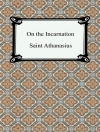Reading the likes of Updike, Dickens, and Faulkner with a preacher’s eye, David Dickinson offers an instructive examination of the role of the sermon as a literary element and, most strikingly, of literature as a modern sermon. Popular perceptions of religion, religious authority, and the practice of preaching have changed significantly during the past century, so much so, Dickinson argues, that fiction writers have a surprising and unique ability to preach to readers through their own fictionalized sermons and the characters who deliver them. The Novel as Church analyzes the context and intent behind these messages, uncovers the dissonance between ‘novel’ and traditional preaching, and illuminates how readers’ attitudes toward preaching (and those who preach) may be influenced–or not–by the sermon writers themselves.
Cuprins
Acknowledgments
Introduction
1. Sounding the Depths of Dissonance
2. Have We Heard the End of the Sermon?
3. Amen: The Assumption of Authority
4. Keeping Faith: The Troubled Preacher in Updike and Lodge
5. Heaven in Ordinary: Religious Experience in Fictional Sermons
6. Words: Poison in the Ear, a Game with Language, or Naming Truth?
7. Shaping Paradise through Preaching
8. Memory and Imagination
Epilogue
Notes
Bibliography
Index
Despre autor
David Dickinson is Director of the St Albans Centre for Christian Studies and a minister at Marlborough Road Methodist Church in St Albans, UK.







![Copertina de Brian Schrag & Julisa Rowe: Community Arts for God's Purposes [Chinese] 貼近神心意的社群藝術 Copertina de Brian Schrag & Julisa Rowe: Community Arts for God's Purposes [Chinese] 貼近神心意的社群藝術](https://static.worldofdigitals.com/thumb_webp/740/9781645083740.webp)




